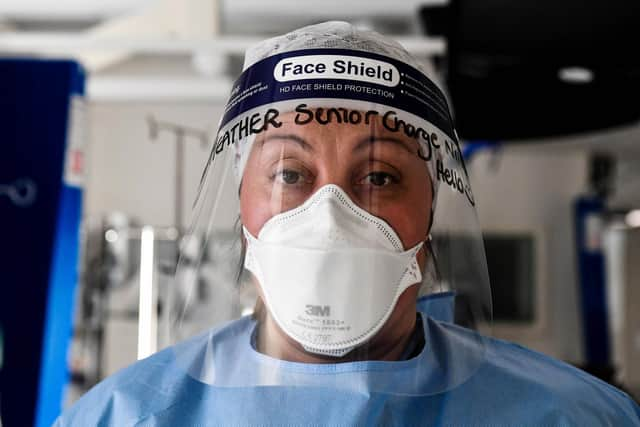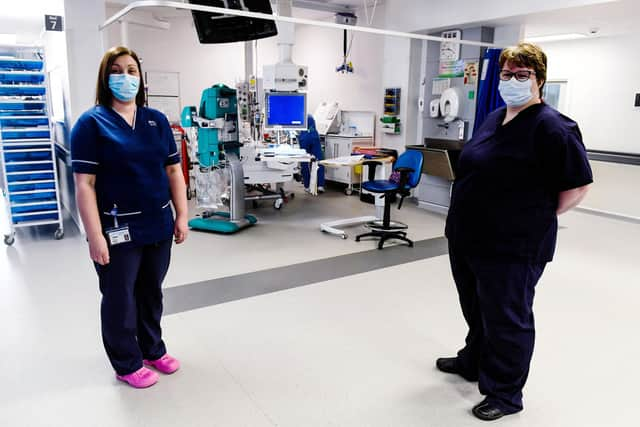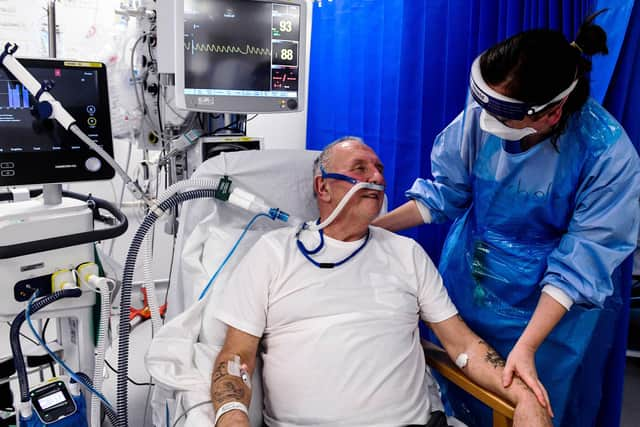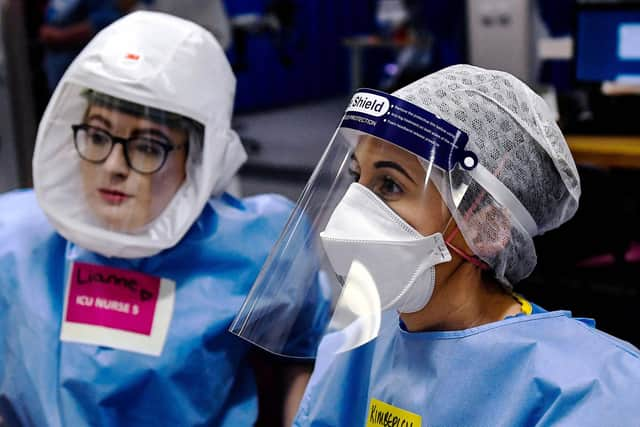'We don't see much light at the end of the tunnel': Inside the Scottish ICU where cases are still rising
and live on Freeview channel 276
But this has not been true of all areas of Scotland. While the drop in cases is beginning to translate to a drop in hospital patients, intensive care units around the country are still battling an influx of cases, in some areas more than others.
Falkirk is one of the few places in Scotland that has seen a recent increase in Covid-19 cases, attributed by NHS Forth Valley in part to increased testing and in part to a few large outbreaks.
Advertisement
Hide AdAdvertisement
Hide AdFor staff in intensive care at Forth Valley Royal Hospital, the fact that local case rates have remained higher than the rest of the country has meant a disconnect between relief and relaxation in the general public, and the overwhelming situation they continue to face.


“We are very busy today, and have been for the last few days,” says senior charge nurse Heather Riddoch, adding that cases as of Wednesday had doubled from the beginning of the week.
"Each wave has got busier. The first wave wasn’t too bad, in the second wave our activity really increased, and we’re finding the same in this third wave.”
She has seen adherence to Covid-19 restrictions “more lax” in the community recently.
Advertisement
Hide AdAdvertisement
Hide Ad"There definitely seems to be a difference – a shift in how people are feeling and we are seeing it’s still very busy here,” she says.


Dr Fiona McIlveney, clinical lead for ICU, says: “I think that’s certainly very important for us.
"Our peak has come slightly behind everybody else’s peak, so while the rest of the country might be relaxing a little bit and thinking that things are improving, this is a time when we are starting to see our numbers go up again.
“From a community perspective it's really important for us that everybody continues to follow the government guidance and takes it seriously.”
Advertisement
Hide AdAdvertisement
Hide Ad

Both say staff have “risen to the occasion” of coping with long hours, shorter breaks and wearing PPE every day for almost a year, “squaring their shoulders, lifting their chins and getting on with it”.
One of the most difficult aspects to deal with has been an increased emotional toll.
"Not having relatives in as often has really affected the staff because they start to feel personally responsible for patients,” said Ms Riddoch.
"We’re at the patient’s bedside for 11.5 hours, so we’re really developing relationships. If that patient becomes more unwell or sadly passes away, it is more impactful on the nurses and I’m sure on the medical staff as well.”
Advertisement
Hide AdAdvertisement
Hide Ad

It is hard to believe the pandemic has only been going on for a year, Ms Riddoch says.
“At the moment we’re not really seeing much light at the end of the tunnel and certainly the last few weeks seem to have got busier for us here,” she says.
She adds staff want the pandemic to be over to make the ICU less busy, but also as members of the general public.
“We’re nurses, but we’re humans as well," she says.
"We’ve got families, we’ve got children having to be home schooled … we just want to go back to normality.”
A message from the Editor:
Thank you for reading this article. We're more reliant on your support than ever as the shift in consumer habits brought about by coronavirus impacts our advertisers.
If you haven't already, please consider supporting our trusted, fact-checked journalism by taking out a digital subscription.
Comment Guidelines
National World encourages reader discussion on our stories. User feedback, insights and back-and-forth exchanges add a rich layer of context to reporting. Please review our Community Guidelines before commenting.